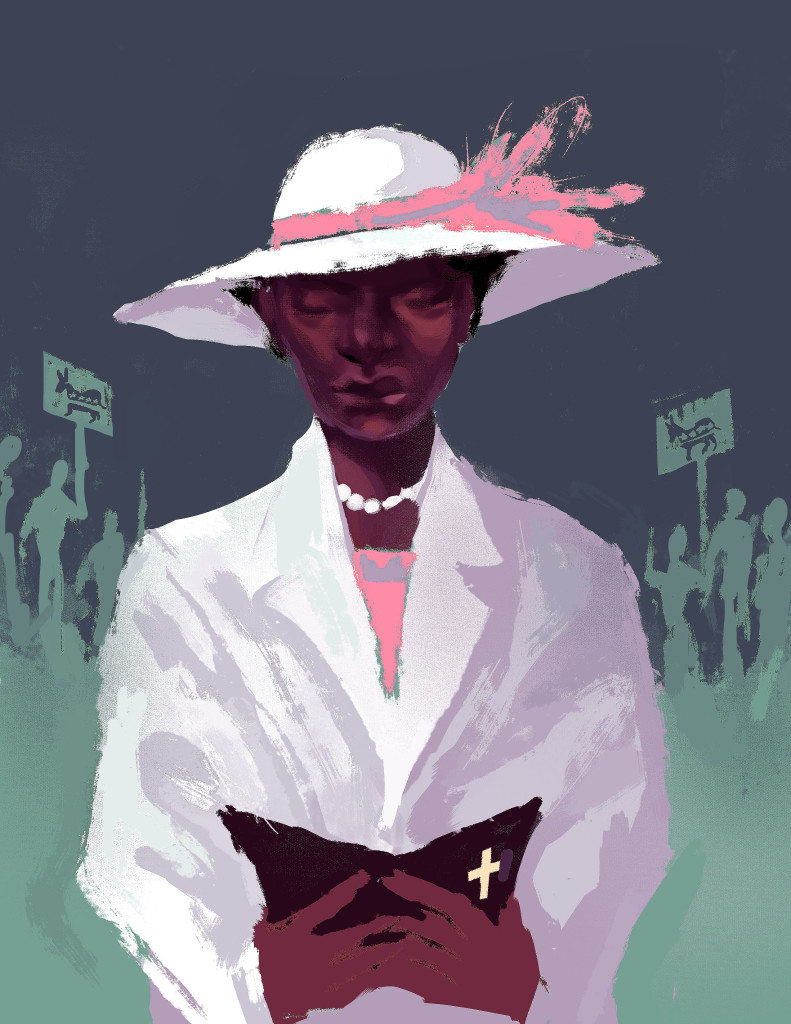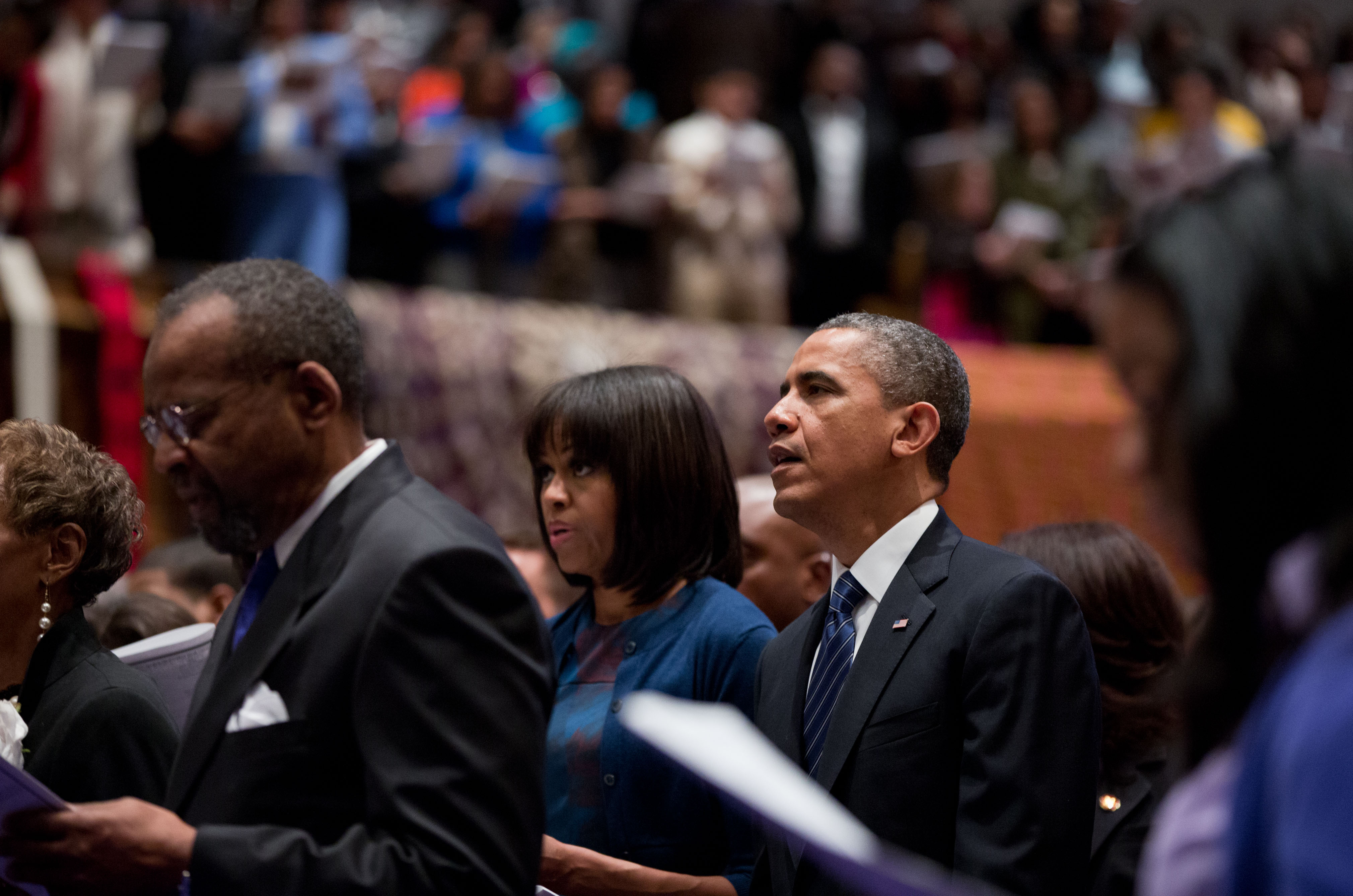 Following the grand jury decision to not indict Darren Wilson, last November hundreds of Bostonians came together for a community conversation on race and policing. Activists and clergy members spoke of the hope they had in the city’s youth. Police officers and community leaders credited programs, like the Youth Jobs initiative, which connects youth with criminal records to summer jobs, and the High-Risk Youth Network, which coordinates services from 150 agencies to reverse the trend of youth violence, for the comparatively healthy reputation between the police and the community in Boston. Yet what stood out about the event was its location; it was not held in town hall or in a public school, but in the Twelfth Baptist Church. It was not organized by the police department or the mayor’s office, but by the Black Ministerial Alliance, the organization that runs the two previously mentioned programs. In the capital of one of the most liberal states in the nation, officials in the church took the lead on issues, not of personal morality but of systemic injustice.
Following the grand jury decision to not indict Darren Wilson, last November hundreds of Bostonians came together for a community conversation on race and policing. Activists and clergy members spoke of the hope they had in the city’s youth. Police officers and community leaders credited programs, like the Youth Jobs initiative, which connects youth with criminal records to summer jobs, and the High-Risk Youth Network, which coordinates services from 150 agencies to reverse the trend of youth violence, for the comparatively healthy reputation between the police and the community in Boston. Yet what stood out about the event was its location; it was not held in town hall or in a public school, but in the Twelfth Baptist Church. It was not organized by the police department or the mayor’s office, but by the Black Ministerial Alliance, the organization that runs the two previously mentioned programs. In the capital of one of the most liberal states in the nation, officials in the church took the lead on issues, not of personal morality but of systemic injustice.
Contrary to popular belief, the socio-political influence of the church in the United States is not limited to the religious right. As race relations and racial reconciliation have return to the forefront of the national consciousness, community members have largely looked to leadership from within the Black Church, whether it is locally, like in Boston, or from ever-present national activists like Al Sharpton and Jesse Jackson. Even as the voting power of the religious right has increased during the presidency of Barack Obama, there has also been a surge in religiously charged rhetoric on the left from actors as disparate as a surprisingly progressive pope to the president himself. In many respects, this resurgence represents not so much a deviation for the Democratic Party from the norm, as the long-awaited return to its roots
Since Jerry Falwell founded his influential organization, the Moral Majority, in 1979 and Reagan’s election a year later, the religious right has monopolized the political identity of Christianity—or at least how many Americans perceive it. This association between conservatism and Christianity has grown at the same time as the United States has become more and more secular, especially on the left. Yet even as more and more young people are leaving the Church, those who stay are increasingly liberal members of ethnic minorities. The Democratic Party and liberalism in general have barely begun to follow President Obama’s lead and move past their association of Christianity with whiteness and conservatism. Currently, about 7 in 10 older Christians are white. But this number is practically flipped when looking at Christians between the ages of 18 and 29, where only 1 in 4 are white. What’s more, the demographic of young Christians is more liberal than conservative, yet simultaneously less inclined to identify with a single political party.
It asks the question: What happens to a Democratic Party dependent on minority votes and a Republican Party that has long counted on Christian votes, when those two demographics converge. The answer to this may lie in history. Traditionally, the Democratic Party did not have a problem partnering with religious progressives. Jimmy Carter carried the evangelical vote, and Lyndon B. Johnson eventually followed the message of ministers like Dr. Martin Luther King to enact civil rights legislation. As the 21st Century grows older, the relationship between religious and political forces will continue to evolve, with a special emphasis on religion’s growth within minority communities, even as it continues to lose ground with whites. In turn, if the Democrats can form a lasting relationship with these new mostly nonwhite and center-left Christians, then they can gain a tremendous advantage in the coming decades.
In many ways, Christian Progressivism hasn’t changed substantively since the time of President Carter. The Christian Left has largely stayed away from fighting with the Religious Right on social issues, as more and more denominations have changed their stance on gay marriage and issues like homosexuality have become less politically contentious, and instead refocused on pushing its own agenda, which some have called the “Consistent Life Ethic”. This ethic is largely concerned with poverty, inequality, the environment, and protecting human life as well as notably antiwar and supportive of gun control, issues that have not lost their salience since 1970s.
The use of liberal Christian rhetoric in mainstream American politics has made a comeback in recent years with the election of Barack Obama as president in 2008. The first Democratic president of the 21st Century goes to church every week, claims to have a personal relationship with Jesus, and actually did community outreach for churches early in his career, though he is not typically seen as a pious president in the way that Jimmy Carter or George W. Bush are remembered. Regardless of the sincerity of his belief, Obama has chosen to write extensively about his background in the Church and his willingness to deploy faith-based rhetoric to support a progressive agenda, both of which have made considerable strides toward normalizing this type of rhetoric on the left. He has been unapologetic about his use of faith-based language, saying, “I think sometimes Democrats have made the mistake of shying away from a conversation about values for fear that they sacrifice the important value of tolerance. And I don’t think those two things are mutually exclusive.”
It is not hard to see the links between his hope-filled rhetoric on the campaign trail and Obama’s belief in “the power of [black church] culture to give people strength in very difficult circumstances, and the power of that church to give people courage against great odds.” Indeed, the one thread that has defined this blend of left-leaning politics and Christianity since the start is its preoccupation with those whom society has marginalized, be it explicitly in the Jim Crow South or implicitly in an economy where the rich get richer and poor get poorer. If Carter was in many ways an archetypal 20th Century Christian progressive, Barack Obama epitomizes that archetype’s descendants.
The Black Church has always been a religious institution that has been at the forefront of social and political movements, and in the coming decades, it will only grow in size and influence, as young Christians are increasingly black and liberal. But if the Democratic Party as a whole is unable to engage with young millennial Christians in which liberals outnumber conservatives then the values of tolerance, social justice, and liberalism could be seriously threatened within the religious community. This is a generation of Christians who understand themselves not called to be moral reformers, but champions of social justice aligned with progressive values.
However, the Democratic Party must also realize that its relationship with liberal Christians will not be like that of Christian Conservatives and Republicans. Leaders on the Christian Left and in the Democratic Party alike should be wary of playing religious beliefs in a move to consolidate power, since a rejection of blind party allegiance has been a defining characteristic of the New Christian Left. Instead, Democrats should focus on building issue-based coalitions, as the country move towards a more ethnically, ideologically, and religiously diverse nation. They should be prepared to partner with a new kind of Christianity, one that is not looking to forge party partnerships for the sake of political clout, as much as it is trying to affect social change, a Christianity that is more concerned with advocating for those without socio-political capital than simply accumulating it.

Excellent piece Dylan. Super insightful. “What happens to a Democratic Party dependent on minority votes and a Republican Party that has long counted on Christian votes, when those two demographics converge.” Great question. Guess we’ll all discover the answer together.